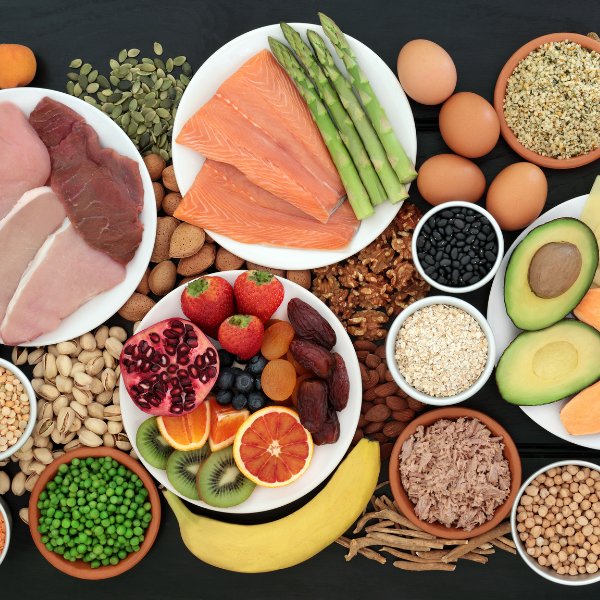With the growing concern for the environment, it is becoming increasingly important to adopt eco-friendly
practices in all aspects of our lives. This includes catering, where there are many opportunities to
reduce waste, conserve energy, and minimize the impact on the environment. Here are ten tips for
eco-friendly catering fashion for food:
1. Use Locally Sourced, Organic, & Seasonal Ingredients
By using ingredients that are locally sourced and in-season, you can reduce the environmental impact of transporting food long distances. Additionally, choosing organic ingredients can help reduce the use of harmful pesticides and fertilizers. Organic ingredients are free from synthetic fertilizers, pesticides, preservatives, and other additives, so guests can be assured that their meal is made with only natural ingredients. Seasonal ingredients guarantee every dish has maximum flavor because the produce was harvested at its peak ripeness.
2. Limit Single-Use Plastic
Hosting a catered event while avoiding single-use plastic can seem daunting, but it's a crucial step toward creating a more sustainable and eco-friendly event. Single-use plastic is one of the biggest environmental threats today. Instead of using plastic cutlery, plates, and cups, opt for reusable or biodegradable alternatives.
3. Avoid Bottled Water
Instead of offering bottled water, provide pitchers of filtered tap water. This reduces the environmental impact of plastic bottle production, transportation, and disposal.
Use energy-efficient equipment: When choosing catering equipment, opt for energy-efficient appliances such as induction cookers, convection ovens, and dishwashers. This not only reduces energy consumption but also saves money on utility bills.
4. Choose Compostable Servingware
Using compostable serving ware at your catering event is an environmentally conscious way to serve food and prevent unnecessary waste. Compostable serving ware, such as plates, bowls, and utensils, are made from natural materials like cornstarch, sugar cane fiber, bamboo fiber, or wheat straw. These materials can decompose in a fraction of the time it takes regular plastic products to degrade, and they produce much fewer carbon emissions than traditional plastics or paper products. Additionally, the decomposition process produces nutrient-rich soil that can be used for growing food and plants.
5. Reduce Food Waste
At catering events, there is often a great deal of food that goes to waste. One way to reduce food waste is to carefully plan the quantity of food that needs to be purchased for the event based on the expected number of guests or attendees. It may also be helpful to ask guests beforehand how much they expect to eat so that an accurate estimate can be made as to what kind of quantity of food will be necessary.
6. Use Eco-Friendly Cleaning Products
Choose cleaning products that are non-toxic and biodegradable to minimize the impact on the environment. These products are free of harsh chemicals like ammonia, chloramine, bleach, and phosphates. By using these cleaning products, you can help prevent the release of hazardous chemicals into the environment, which ultimately affects our water systems and wildlife. At your catering event, use eco-friendly cleaning supplies that are not only safe for the environment but also save you money in the long run. Eco-friendly products often contain fewer ingredients than traditional cleaners, so they may be more concentrated and last longer.
7. Use Energy-Efficient Equipment
When choosing catering equipment, opt for energy-efficient appliances such as induction cookers, convection ovens, and dishwashers. Using energy-efficient equipment at a catering event is essential to keeping costs low and reducing the environmental impact. Not only does it help to keep expenses down, but it also reduces emissions and waste, which helps to improve air quality in our communities.
8. Offer Vegetarian & Vegan Options
Plant-based diets are better for the environment than meat-based diets. Offering vegetarian and vegan options can help reduce the environmental impact of your catering service.
9. Use Reusable Tablecloths & Napkins
Instead of using disposable tablecloths and napkins, opt for reusable ones made from sustainable materials such as organic cotton or linen. Reusable tablecloths are not only cost-effective, but they also provide a professional look to any event. They come in a variety of sizes, colors, and styles that can be easily coordinated with the theme of the event. Reusable napkins are another great way to reduce waste while still maintaining an elegant atmosphere.
10. Encourage Guests To Recycle
Place recycling bins around the event space and encourage guests to recycle their plates, cups, and other items. This can significantly reduce the amount of waste generated by the event.
Be The Change
There are many ways to make catering more eco-friendly. By adopting these tips, you can reduce waste, conserve energy, and minimize the impact on the environment. As more people become aware of the importance of sustainability, eco-friendly catering will become increasingly popular and necessary.







